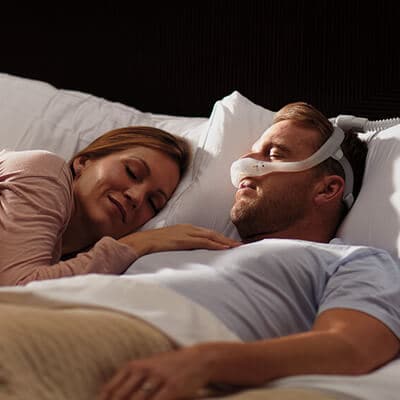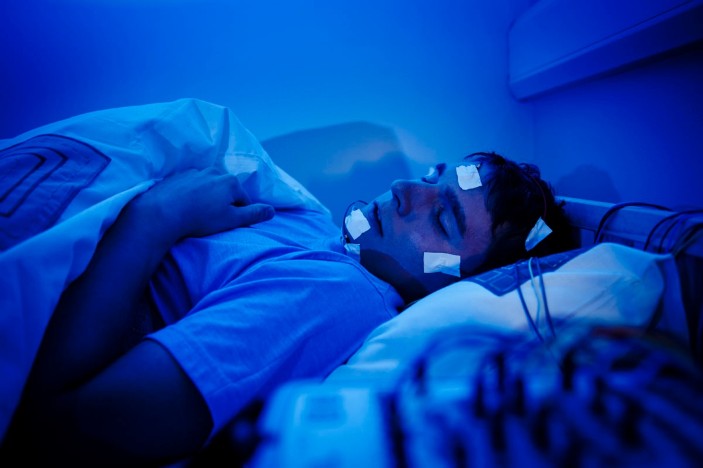Cognitive Behavioral Therapy for Insomnia (CBT-I) - Proven Techniques
Cognitive Behavioral Therapy for Insomnia (CBT-I) - Proven Techniques
Blog Article
Effective Treatment Solutions for Managing Sleep Disorders and Enhancing Peaceful Sleep
In the world of health care, the monitoring of sleep conditions and the mission for peaceful rest are critical components of overall wellness. As we navigate the detailed landscape of sleep problems and seek to improve our rest experience, a much deeper understanding of these treatment solutions might hold the key to opening a more rejuvenating and meeting restorative trip.
Cognitive Behavior Modification for Sleeplessness (CBT-I)
Cognitive Behavior Treatment for Sleep Problems (CBT-I) is a structured, evidence-based treatment approach that concentrates on dealing with the hidden aspects adding to sleep disturbances. This kind of treatment aims to customize habits and ideas that aggravate sleeping disorders, ultimately promoting healthy and balanced rest patterns. CBT-I generally includes several vital elements, consisting of cognitive therapy, sleep constraint, stimulus control, and rest health education.
Cognitive treatment helps individuals identify and alter adverse thought patterns and ideas concerning rest that might be impeding their capability to drop or stay asleep. Sleep limitation entails restricting the quantity of time spent in bed to match the person's actual sleep duration, thus enhancing sleep effectiveness (natural insomnia remedies). Stimulation control techniques help establish a strong organization in between the bed and rest by encouraging people to visit bed only when sleepy and to stay clear of taking part in stimulating activities in bed
In addition, sleep hygiene education concentrates on establishing healthy sleep routines, such as preserving a regular sleep timetable, creating a relaxing going to bed routine, and optimizing the rest setting. By resolving these aspects comprehensively, CBT-I supplies an efficient non-pharmacological intervention for taking care of sleeping disorders and enhancing overall rest quality.
Sleep Health Practices
Having developed the foundation of cognitive restructuring and behavioral alterations in attending to sleeping disorders through Cognitive Behavioral Therapy for Sleeplessness (CBT-I), the emphasis now shifts in the direction of discovering necessary Sleep Health Practices for keeping optimal rest quality and total wellness.
Rest health practices include an array of routines and ecological elements that can dramatically affect one's capacity to drop asleep and stay asleep throughout the evening. Constant rest and wake times, producing a relaxing going to bed routine, and optimizing the sleep setting by maintaining it dark, quiet, and cool are critical parts of good sleep hygiene. Limiting direct exposure to displays prior to bedtime, preventing energizers like high levels of caffeine close to bedtime, and involving in normal physical task throughout the day can additionally promote better rest quality.
Furthermore, practicing relaxation techniques such as deep breathing workouts or meditation before bed can help calm the mind and prepare the body for rest. By incorporating these sleep health methods into one's everyday routine, people can establish a healthy and balanced sleep pattern that sustains restful sleep and general wellness.
Relaxation Strategies and Mindfulness
Implementing leisure techniques and mindfulness methods can play a crucial duty in promoting a feeling of tranquility and advertising quality rest. In addition, guided visit site imagery can aid deliver people to a tranquil location in their minds, assisting in stress reduction and improving rest top quality.
By incorporating these practices into a going to bed regimen, people can signal to their bodies that it is time to prepare and relax for sleep. Generally, integrating relaxation methods and mindfulness methods can substantially contribute to managing sleep conditions and boosting total sleep high quality.

Medicine Options for Rest Disorders
After exploring relaxation strategies and mindfulness practices as non-pharmacological interventions for boosting rest top quality, it is crucial to take into consideration medicine choices for individuals with rest conditions. In cases where way of life adjustments and treatment do not supply sufficient alleviation, medicine can be a valuable device in managing rest disruptions.
Generally prescribed medicines for rest conditions include benzodiazepines, non-benzodiazepine hypnotics, antidepressants, and melatonin receptor agonists. Antidepressants, such as trazodone, can be valuable for people with co-occurring anxiety and rest disruptions - insomnia specialist.
It is vital for individuals to talk to a health care company to identify one of the most proper drug alternative based on their details sleep condition and medical background.
Light Therapy for Body Clock Guideline
Light treatment, likewise called photo-therapy, is a non-invasive therapy method made use of to control body clocks and boost sleep-wake cycles. This treatment entails exposure to brilliant light that simulates natural sunlight, which helps to reset the body's biological rhythm. By subjecting people to particular wavelengths of light, usually in the morning or evening depending on the preferred result, light therapy can successfully readjust the circadian rhythm to advertise wakefulness throughout the day and improve relaxed rest at evening.
Study has actually revealed that light therapy can be specifically valuable for people with body clock disorders, such as postponed rest phase disorder or jet lag. It can likewise be practical for those experiencing seasonal depression (SAD), a kind of clinical depression that generally happens throughout the wintertime months when all-natural light direct exposure is reduced. Light treatment is normally well-tolerated and can be made use of combined with various other treatment techniques for rest problems to maximize end results and enhance overall rest high quality.
Verdict
In final thought, efficient visit the website treatment services for managing sleep problems and enhancing peaceful rest consist of Cognitive Behavior modification for Sleeping Disorders (CBT-I), rest hygiene practices, relaxation methods and mindfulness, medication choices, and light therapy for circadian rhythm law. These methods can assist people boost their sleep top quality and overall well-being. It is important to talk to a doctor to establish one of the most suitable method for attending to sleep issues.
As we browse the complex landscape of rest problems and look for to boost our rest experience, a deeper understanding of these treatment remedies may hold the key to opening a much more refreshing and fulfilling restorative journey.
Rest limitation involves restricting the amount of time spent in bed to match the person's actual sleep period, consequently boosting rest efficiency. Constant sleep and wake times, developing a relaxing bedtime regimen, and maximizing the sleep setting by keeping it dark, peaceful, and cool look at this site are crucial elements of good sleep hygiene. Light therapy is typically well-tolerated and can be used in conjunction with various other treatment methods for rest disorders to enhance results and improve general sleep high quality.

Report this page